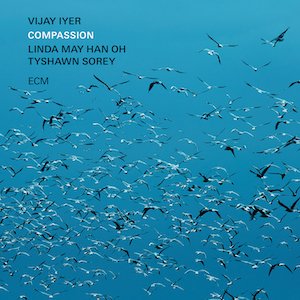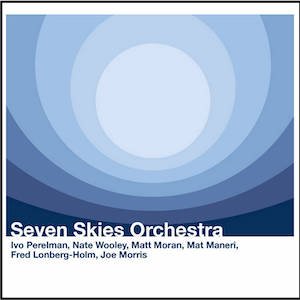Label: TPR Records, 2024
Personnel - Joel Frahm: tenor saxophone; Tara Davidson: alto saxophone; William Carn: trombone; Adrean Farrugia: piano; Dan Loomis: bass; Ernesto Cervini: drums.
Ernesto Cervini, a drummer/composer from Toronto and JUNO award winner, pays tribute to Canadian songs and artists with A Canadian Songbook, featuring his Turboprop sextet. This third outing comprises seven tracks, including two originals and five covers, where the adventurous ensemble shines.
The opener, James Hill’s “Skeletons” showcases the group at its bravest. It’s a structurally interesting piece underpinned by a skittering EDM-inspired rhythm intertwined with divergent rubato passages. It’s also a furious, blowing vehicle for the horn section - altoist Tara Davidson, trombonist William Carn, and tenorist Joel Frahm - whose exchanges are caught in a spiral of joyful and energetic purpose.
The following track, Barenaked Ladies’ “When I Fall” is a circular 3/4 pop/rock song comfortably harmonized by bassist Dan Loomis who, locking up with Cervini, serves Carn’s opening solo before making a statement of his own. The piece climaxes with Frahm’s tenor statement, a perfect blend of emotion and vibrancy.
Somehow recalling the music of Mulgrew Miller and Branford Marsalis, “Aureole”, penned by alto saxophonist Allison Au, expands the musical palette into a cerebral if extroverted post-bop that swings with a modern mainstream vibe. Its strong sense of texture stands out.
Cervini’s own compositions, “If, Then” and “Stuck Inside”, display contrasting postures. The former combines snare fluxes and staccato moves, first unfolding in 5/8 before shifting in tempo, while the latter sprawls with a more familiar jazz progression delivered with symmetry and balance.
While this is not Cervini’s best recording, it serves as a finely honed reflection on the Canadian music scene, showcasing the collaborative energy of his ensemble throughout.
Favorite Tracks:
01 - Skeletons ► 03 - When I Fall ► 06 - Aureole








































